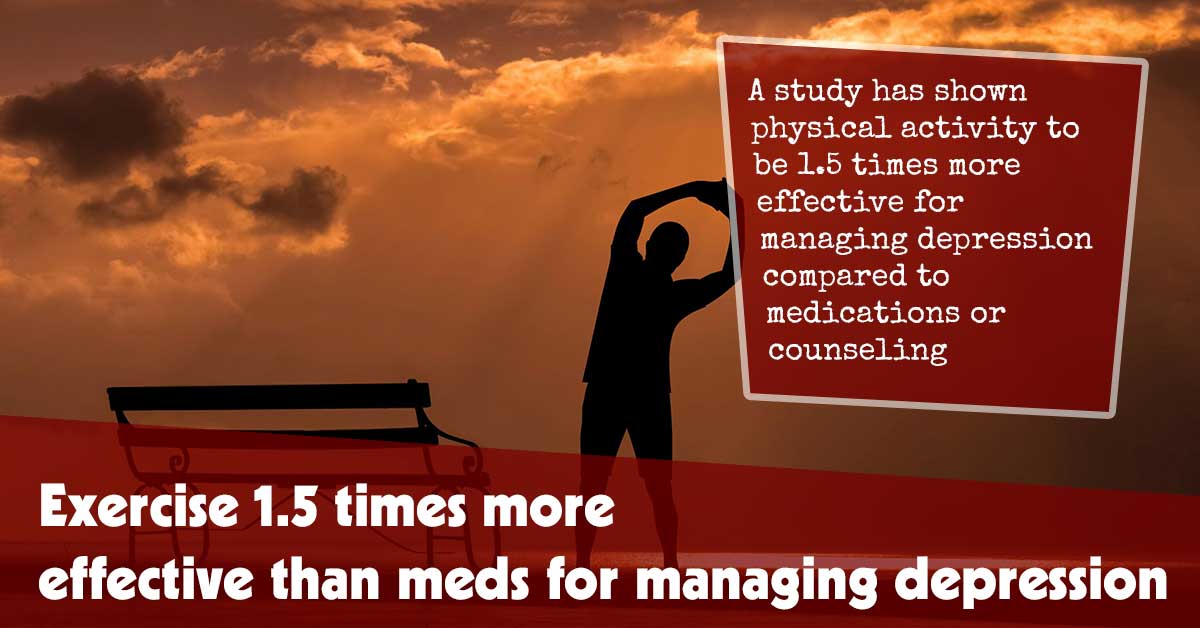A study has shown physical activity to be 1.5 times more effective for managing depression compared to medications or counseling. The review involves 128,119 participants from 1039 trials and 97 reviews. It indicates that physical activity is significantly beneficial for helping to improve symptoms of distress, anxiety, and depression.1✅ JOURNAL REFERENCE DOI: 10.1136/bjsports-2022-106195
The review revealed that exercise treatments of 12 weeks or less were the most effective for reducing symptoms of mental health conditions, emphasizing the speed at which changes can be produced from physical activity.
The most significant benefits were seen in individuals with depression, postpartum and pregnant women, healthy people, and individuals diagnosed with kidney disease or HIV.
According to the WHO, 1 in every 8 individuals globally lives with a mental health disorder. Mental health disorders cost the world economy approximately $2.5 trillion every year, a cost estimated to increase to $6 trillion in the next few years.
The researchers say physical activity should be prioritized for better management of the growing number of mental health disorder cases.
Physical activity is known for helping to improve mental health. But in spite of the evidence, it hasn’t been widely implemented as a 1st-choice treatment.
The review suggests that physical activity treatments can produce significant reductions in symptoms of anxiety and depression in all population groups, with some groups exhibiting even better signs of improvement.
Exercise of higher intensity yielded greater improvements for anxiety and depression, while exercise of longer duration had smaller effects in comparison to short and mid-duration exercise.
It was also observed that all kinds of exercise and physical activity were beneficial, which included aerobic exercises such as yoga, Pilates, resistance training, and walking.
Most significantly, the research indicates that it doesn’t take much exercise for making a positive change to mental health.



